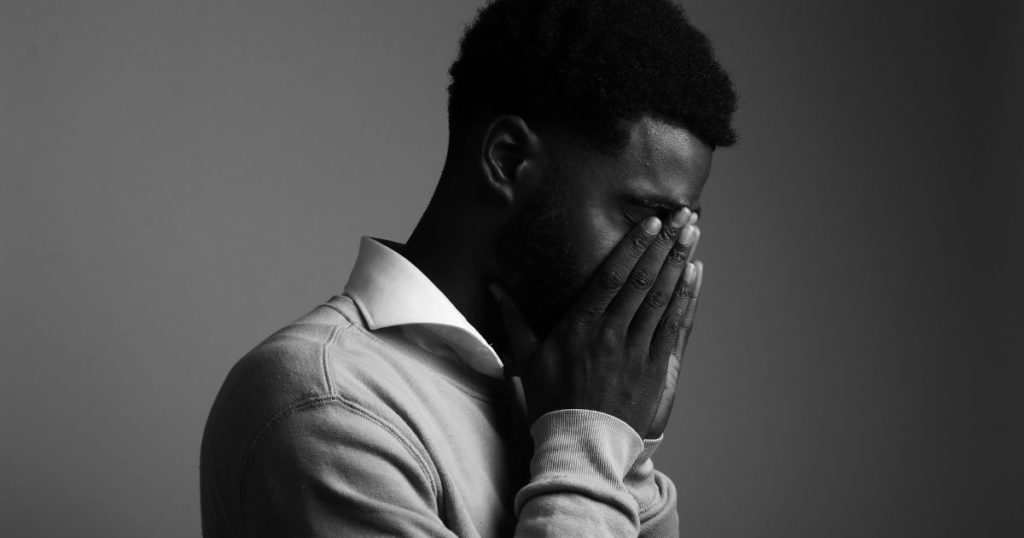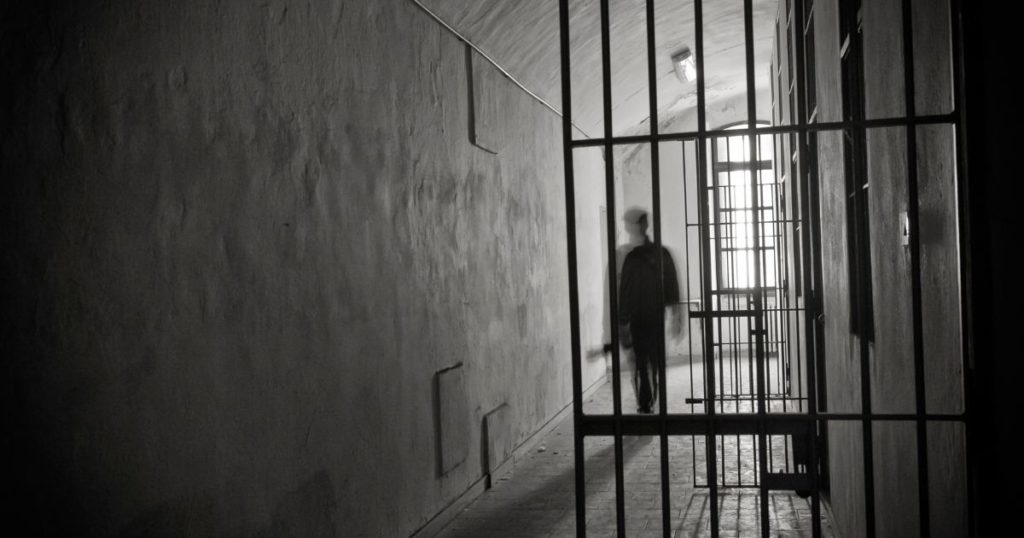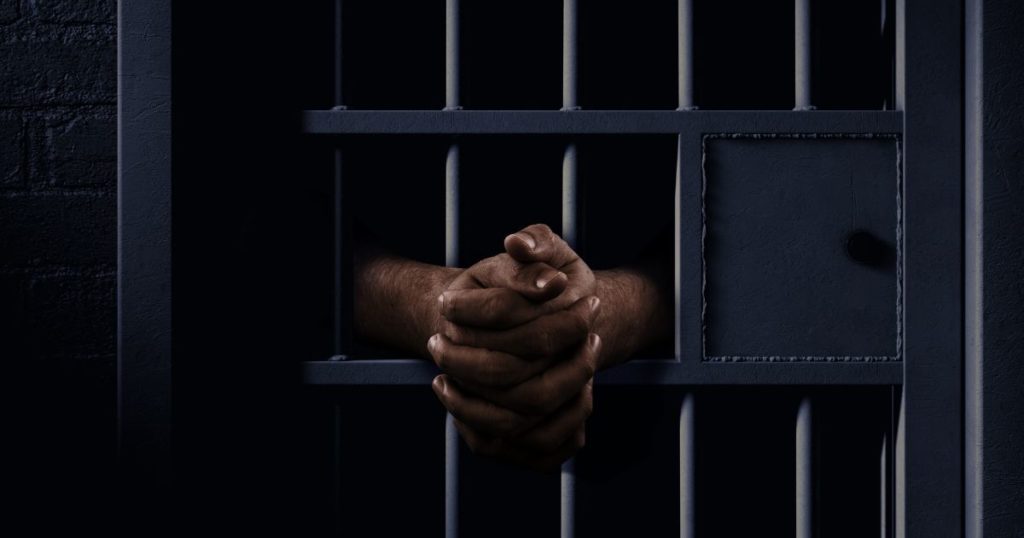When people commit violent crimes, do they deserve a second chance after prison? a Curvy Mom’s response to the powerful investigative documentary.
Is the justice system…just?
The United States is not united when it comes to how we should treat incarcerated people on their paths to grow, change, and re-enter society as honest citizens.
While you’d think we operate within a unified criminal justice system, according to The Prison Policy Initiative, the U.S. actually has thousands of prison systems ranging from federal, state, and local. These systems hold nearly 2 million inmates across its facilities like federal prison, local jails, and juvenile correctional centers.
That number had largely increased since 1980, yet The Marshall Project reports that the number is beginning to slightly dwindle…but that’s due to COVID-19 and not actual reform. Which is a curious situation as parole was invented to release incarcerated people after changing their behavior and give them a chance to start over.
Yet when we watched Second Shot, the documentary film by Andrew Michael Ellis that dives into “violent crime and juvenile justice,” we were shocked to learn how challenging it is for people to get that chance once they’ve been locked up, especially if they are young, Black men.
The film shines a spotlight on the case of Lawrence Bartley, the then-17-year-old who accidentally shot and killed 15-year-old Tremain Hall; was tried as an adult; and sentenced to life in prison. It recounts these events through the real people who experienced them, as well as actors portraying them in specific flashbacks scenes (shoutout to my little cousin, Justin Hardy, who played young Tremain Hall).
It was Christmas evening in 1990 when Tremain Hall and his friend, 17-year-old Turaine Haines, attended a movie showing of The Godfather III in Queens, NYC. Lawrence Bartley and his friends were also in attendance. Everything was normal until a shouting match to quiet down during the film started between the friend groups…which resulted in a shootout that injured three people, including Haines, and killed Hall.
The bullet that took Hall’s life came from Bartley’s gun, who said he was scared but only started shooting because he didn’t want to look “soft” in front of his friends.
We understand that violent crimes like these should be met with justice for the victims and their families; and we also believe that if the incarcerated person reforms while serving time, especially after being sentenced as a minor, they should be able to pick up the pieces of their life and grow.
But it’s not always that simple.

Related Article: Celebrating Black History Month: The Most Influential African American Women
What happens when a young, Black man in America makes a poor decision?
When the justice system has a knack for punishing Black men and boys more harshly, it’s difficult to see how the prison system can actually be a growing tool for reform, especially when they are often denied parole.
Bartley stated in the documentary that he didn’t expect to be a person who killed someone when he grew up. Yet his childhood wasn’t innocent living in Queens, as Bartley was shot four times in a driveby. He survived but it left him afraid to turn to the police for help when he feared for his life. He decided to start carrying a gun to feel safer.
And when Bartley used that gun on December 25th, 1990, it would change not only his life, but the lives of Hall and his family. Chad Hall, Hall’s older brother, recounts that night as “destroying his life.”
“I didn’t give a sh*t about life. Everything was fragile,” Chad Hall said. “I just never thought in my wildest imagination that my brother would go to a movie theater and be shot and killed.”
We can only imagine the pain he and his family dealt with, and the relief they must have felt when Bartley was imprisoned.
What breaks our hearts is that in this situation, no one gets the upper hand. While Hall’s family deservedly received justice, and Bartley understood the severity of his crime and accepted his sentence, what followed is a clear example of the failings of our justice system.
Bartley wasn’t some ruthless killer, but a misguided minor who made a horrible decision and met grave consequences. Those consequences being life in prison with the possibility of parole after serving 27 years.
“Ten thousand individuals in New York state a year appear before the parole board…60% will be denied,” Anthony Dixon, member of the Parole Preparation Project, said in the documentary. “In our system, the only way for you to be healed is for this person to continue to hurt. [Prison] is the culture of punishment.”

Related Article: An Inside look at My Black Is Beautiful
Can incarcerated people atone and reform?
Former New York parole chairman, Robert Dennison, said in the film, “It’s difficult to decide how much prison time someone should do when they take a life…the most important factor is to try to measure whether or not they changed as a human being.”
Some people think that if you do the crime, you should do the time, and we agree. But what happens if the person learns their lesson and proves to be ready to re-enter society?
According to Second Shot, everyone who knew Bartley in prison believed he was one of those people.
“When I…think about Lawrence Bartley, I see a guy smiling,” said Michael Capra, Superintendent at the Sing Sing Correctional Facility where Bartley was incarcerated. “He’s upbeat, he’s positive, he’s sharp, he’s humble, he’s truthful.”
We believe that’s because Bartley took the time to educate himself while behind bars, studying and earning his masters degree, as well as becoming a motivational speaker in the facility to encourage other inmates to reform their lives, too.
Yet when Bartley was finally scheduled to appear in front of the parole board…he was denied.
It wasn’t until Issa Kohler-Hausman, lawyer and professor of law at Yale, made Bartley her star representative in her lawsuit against Cy Vance, NY’s top prosecutor, that he was finally paroled in May 2018 after serving 28 years. Currently, Bartley lives in NYC with his wife, Ronnine, and their two sons as he works full-time as a journalist for The Marshall Project.
But as we know, this isn’t the case for most inmates.
So, we have to ask the question: What is the point of parole within the criminal justice system if it won’t allow people to change and regain their lives?
While Chad Hall stated in the documentary he had no desire to see Bartley after his release, it seemed even he thought there was an issue with the way the justice system handles violent crimes.
“Tremain can never be brought back and Lawrence Bartley can never get those 28 years of his life that he spent behind bars back,” Hall said. “In the eyes of justice, there are no winners in this situation.”

The future of the criminal justice system
The violence that young, Black men face in America is well-documented and it breaks our hearts that no one prevails in the end.
We at a Curvy Mom advocate for the justice system to reform in a way that makes healing a real possibility, especially when they make an effort to be better people.
It’s incredible to see the outcry for criminal justice reform from not only civilians but celebrities with the reach and funds to have a direct impact. From John Legend and Jay-Z to Alicia Keys and Alyssa Milano, celebrities are putting their money where their mouths are to make a change in our dysfunctional criminal justice system.
We think it’s support like theirs, along with ours, that moves the needle in our country to make parole a viable option for inmates, especially juveniles tried as adults, as they learn from their mistakes and become better people for it.
If you’d like to make your voice heard, too, consider donating to your local criminal justice reform organizations, or to The Marshall Project.

